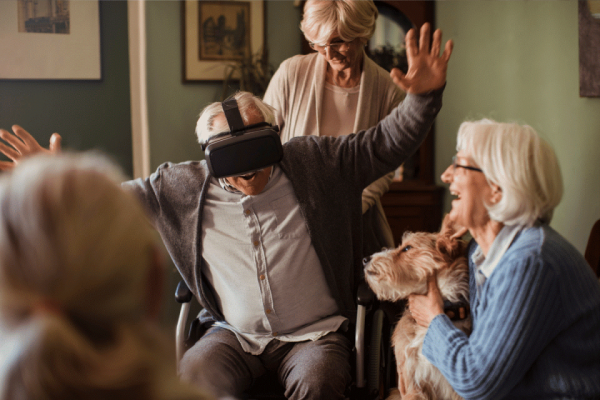
University of Bolton, Deane Road, Bolton. BL3 5AB
Tel:
Email:


“At the University of Bolton, we take great pride in providing a quality, supportive learning environment for our students.”
Professor George E Holmes DL | President & Vice Chancellor
“...tutors are very supportive and you’re not just a student ID number, at this university you are an individual with a name.”
Ellisse Vernon | BSc (Hons) Adult Nursing
Back to menu
Back to menu
Study with an Off-Campus Partner
Back to menu
Back to menu
University of Bolton, why we are the right choice
Location - Bolton, Greater Manchester

17/10/2024
When you think about potential careers that are personally rewarding and make a real difference in people’s lives, working as a carer might immediately come to mind, but did you know that it’s also quickly becoming a profession that’s more modernised and exciting? The use of technology in healthcare has transformed the way patients receive care across a number of different sectors, and believe it or not, care homes are no exception.
For nursing students interested in healthtech jobs, technology in care settings is making it an innovative and exciting line of work. From improving the quality of care to enhancing safety and efficiency, let’s take a look at how technology is making an impact on the profession.
Newer tech like wearable devices and remote monitoring tools are making it much easier for staff to track vital signs such as heart rate, blood pressure and oxygen levels among their many residents. This means that any changes in a patient’s health are quickly detected, allowing for faster interventions and reducing the number of medical emergencies.
Additionally, smart sensors and alert systems can help prevent falls and accidents, both of which are a significant concern in elderly care.
Like every other field, data analytics and artificial intelligence (AI) are completely changing the way we think about personalised care for residents. AI software can quickly analyse large amounts of patient data to predict health, identify risks and come up with tailored care plans for each individual. For example, AI can help identify early signs of conditions such as dementia or heart disease, which leads to much earlier diagnosis and treatment plans.
This level of personalised care means that you can deliver better care for your residents and spend less time agonising over individual care plans.

A particularly big concern in care home environments is whether residents enjoy adequate social wellbeing. To help solve this, virtual reality (VR) devices are being trialled in many care homes to provide immersive experiences for patients to counteract feelings of isolation or boredom. During the COVID-19 pandemic, video calling became a staple way for people with limited visitation to stay in touch with their families, and this method has remained popular as a way to reduce loneliness and provide access to mental health support.
For families, as they’re so often on the outside looking in, technology gives them the opportunity for greater involvement and transparency. Many nursing homes now provide apps or portals where families can ‘check in’ on their loved one’s health, access updates from staff or just chat directly with caregivers.
Ever thought about a career that revolves around improving the lives of people in our local community? Nursing could be the perfect avenue into a fulfilling role in care work. Talk to us on 01204 903394 or email enquiries@bolton.ac.uk to experience #UniAsItShouldBe and learn all about how the profession continues to evolve.